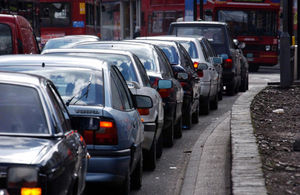Working from home could save families £3,000
People in the West Midlands could save more than £3,000 a year by working from home, according to a new study.

Thousands of office workers and some in other industries have spent a large part of 2020 working from home due to the coronavirus pandemic.
The Government's push for workers to return to the office was abruptly halted last month when tighter restrictions included working from home if possible.
And it means many families have avoiding shelling out cash for fuel, train tickets, insurance and other costs, making a difference to their earnings.
The average commute in the West Midlands is 56 minutes and workers in the region spend £3,094 a year covering the associated costs, a study by money.co.uk found.
An average of £743 is spent on petrol, while commute mileage adds around £150 to insurance premiums.
There are suggestions many companies may increase remote working once the pandemic is over after reaping the benefits over the last few months, and it could mean families saving thousands of pounds.
Research showed more than three quarters (76 per cent) of motorists have reduced their annual mileage, with the average for UK drivers falling from 8,000 miles a year to just 3,000.
Salman Haqqi, personal finance expert from money.co.uk, said: “With more firms looking to extend home working or even make permanent switches to remote working for staff, some UK workers could be in for a surprise windfall in both tangible savings and unpaid commute time.
“On average, we spend 57 minutes a day commuting to our places of work, with those who drive spending £743 a year on petrol costs to do so.
"Based on average salaries across the UK, it means we spend the equivalent of £3,275.44 in time on cars, trains, and buses travelling to and from work every year.
“It remains to be seen to what extent firms across the UK will embrace remote working post-pandemic.
"However, should the extended lockdown continue across the next six months as suggested, it could leave workers better off in both time and money.”





